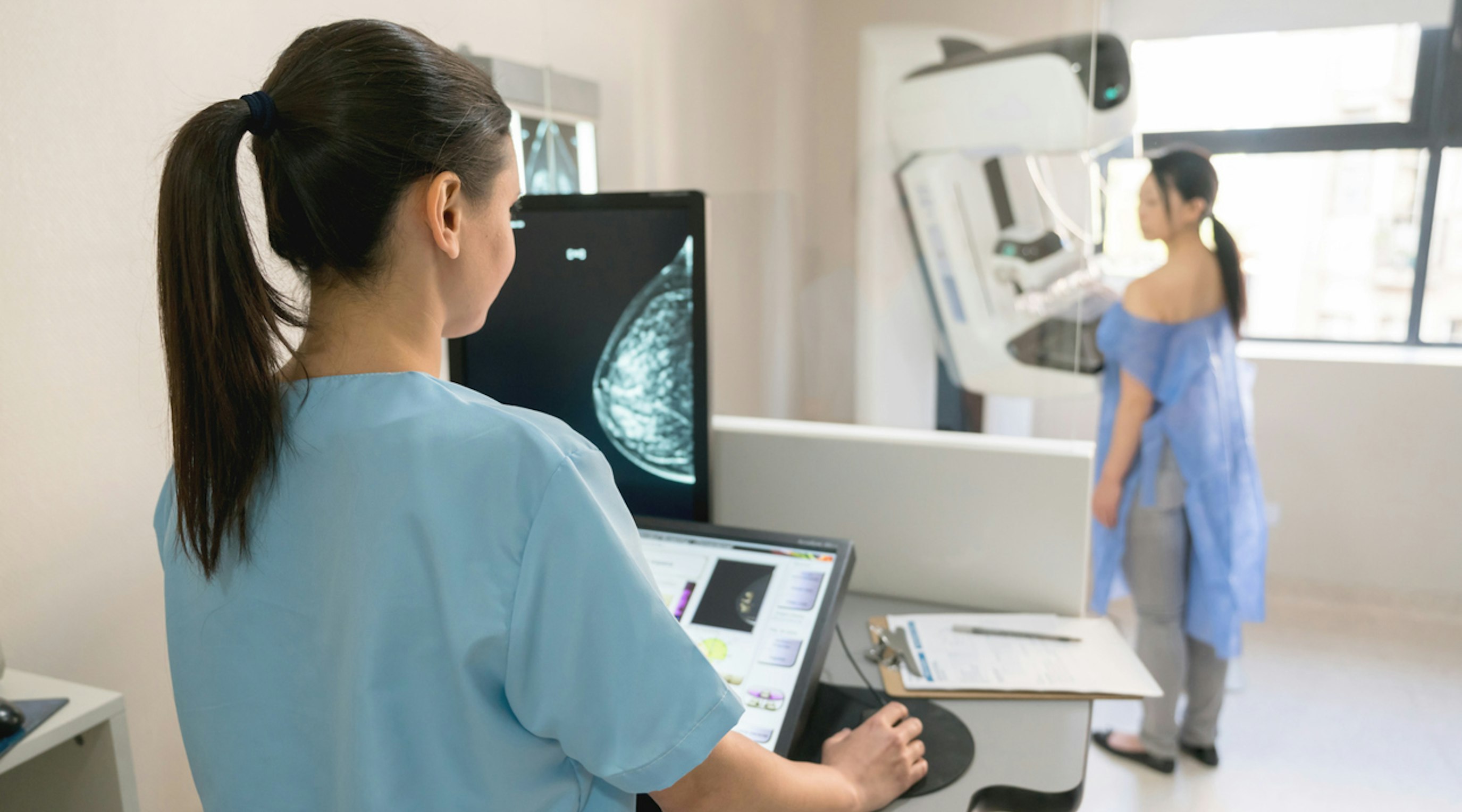How medical cannabis may be of benefit to breast cancer patients
12 min read
Sarah Sinclair
Disclaimer: This blog features a contribution from a Releaf patient who generously shared their cancer journey before sadly passing away; their story remains here in gratitude and respect for their courage and contribution.
There’s a lot of misinformation out there when it comes to cannabis and cancer. To mark Breast Cancer Awareness Month, we want to empower patients with information about their options and how medical cannabis can play a role as an adjunctive therapy in cancer treatment plans.
While medical cannabis does not cure cancer, it may help reduce the impact of side effects that certain conventional treatment approaches bring, and also help manage some of the symptoms. That could mean reducing cancer pain, easing the waves of nausea and general lack of appetite that chemotherapy often causes, supporting healthy sleep and recovery, and/or helping calm feelings of anxiety and depression.
Contents
Releaf world-class clinical team only offers legal medical cannabis prescriptions within a highly regulated, medically overseen framework. There is no ‘one-size-fits-all’ approach to medical cannabis treatment, especially for such a serious health concern as cancer, so this level of clinical oversight is essential to make sure each and every Releaf patient has access to a full personalised treatment plan and safe cannabis-based medicines.
This Breast Cancer Awareness Month, we want to recognise that informed choice involves more than early detection and traditional treatment approaches. It is also about fully empowering the UK public to understand the full range of supportive treatment approaches for cancer, medical cannabis and beyond.
Breast Cancer Awareness Month and the growing focus on patient wellbeing
Breast Cancer Awareness Month is an international health campaign which takes place every October. Since its launch in 1985, it has aimed to raise awareness of breast screening, early diagnosis and prevention.
There are many different ways you can get involved with the campaign, such as by wearing pink on 18th October to raise funds for Breast Cancer Now, or taking on an exercise-based challenge for Breast Cancer UK.
For decades, awareness days focused on the patients themselves, but in recent years, we are seeing a shift to emphasise the well-being of patients and families living through treatment. Cancer treatment takes support, and those supporting often need a little helping hand themselves.
How Breast Cancer Awareness Month empowers patients and families
The simple reminder that each Breast Cancer Awareness Month brings each and every October inspires thousands across the UK (and globally) to connect and share their experiences. This act of shared purpose fosters education, compassion and courage within communities that might otherwise feel isolated by illness.
By encouraging open dialogue not just between patients, but also the families and carers, the aim is to increase understanding around early warning signs, treatment options, and how to access the support communities out there.
When patient stories are shared, the stigma surrounding illness hopefully fades, replaced by understanding and hope. The campaign’s visibility drives donations to vital research, supports counselling services and ensures more people know where to find credible, compassionate information.
Alongside medical treatment there are places you can go to find support, including charities such as Breast Cancer Now, Macmillan Cancer Support, Cancer Research UK and Marie Curie.
Understanding breast cancer in the UK and its common challenges
Breast cancer is the most common form of cancer diagnosed in women globally, affecting around two million women every year. It can occur in every country of the world at any age after puberty, but, the risk of developing breast cancer increases later in life. According to the World Health Organization, approximately 0.5–1% of breast cancers occur in men.
In the UK, breast cancer is the most common form of cancer, with 56,800 new cases diagnosed every year. Since the early 1990s, breast cancer incidence rates have increased by around 18%. However, in the last 50 years, survival rates have doubled.
Today, Cancer Research estimates that almost 8 in 10 women diagnosed with breast cancer are predicted to survive for at least 10 years.
Behind these figures are real people navigating breast cancer treatment, and the fear and hope, the ups and downs, the true emotional rollercoaster that cancer treatment can be. The stats show progress, but they don’t necessarily account for all the changes that come with adjusting to treatment, recovery, and then hopefully remission.
And that's not just physical or health challenges. The more mundane, day to day shifts that come with such a diagnosis - the long appointments, the sleepless nights, the work that's needed to rebuild strength and hold onto courage throughout.
The main types of breast cancer and their impact on patients
There are several different types of breast cancer. Most types are ‘invasive’, which means they may spread to other areas of the body. Non-invasive breast cancer has not yet developed the ability to spread.
Some of the more common types of breast cancer include:
- Ductal carcinoma in situ (DCIS)
- Invasive breast cancer no special type (NST)
- Invasive lobular breast cancer
- Inflammatory breast cancer
- Paget’s disease of the breast
- Secondary breast cancer
This year, Breast Cancer Awareness Month is focused on raising awareness of secondary (or metastatic) breast cancer, which affects around 61,000 people in the UK. This term is used when the cancer has spread to another part of the body, such as the liver, lungs, brain, or bones.
Managing breast cancer symptoms and treatment side effects naturally
As well as being aware of the symptoms of breast cancer, women should also carry out regular self-examinations to get to know what is normal for their breasts. This ensures any changes or abnormalities can be detected at the earliest stages.
According to the NHS, symptoms of breast cancer in women may include:
- a lump or swelling in your breast, chest, or armpit
- a change in the skin of your breast, such as dimpling or redness (which may be harder to see on black or brown skin)
- a change in the size or shape of the breasts
- nipple discharge (if you are not pregnant or breastfeeding), which may have blood in it
- a change in the shape or look of your nipple, such as it turning inwards or a rash on it (which may look like eczema)
- pain in your breast or armpit, which does not go away. Breast pain that comes and goes is usually not a symptom of breast cancer
Symptoms of secondary breast cancer depend on where in the body the cancer has spread to, but they are often similar to those of other conditions such as:
- Feeling constantly tired
- Constant nausea (feeling sick)
- Unexplained weight loss and loss of appetite
Breast Cancer Now recommends speaking to your GP or breast nurse if you have any symptoms which are new, don’t have an obvious cause, and don’t go away.
The most common side effects of breast cancer treatment
Then there are the side effects of the heavy pharmaceutical/conventional treatment options that are simply necessary for many cancer patients. On top of the pain, there's the nausea and the vomiting, the broken sleep, the higher chance of anxiety and depression that goes with the emotional and physical exhaustion, and then to top it all off, the lack of want to eat.
Recovery needs fuel, rest, and steady care, yet these side effects can make even small daily routines feel difficult. Chemotherapy, radiotherapy, and hormone therapy can each affect energy levels and overall well-being in different ways. Some people notice changes in weight or mood, while others struggle with nerve pain or sensitivity that lingers long after treatment ends.
Supportive therapies that help improve the quality of life
Thankfully, medical cannabis treatment for cancer is showing real potential to help patients manage these side effects more comfortably. Under clinical supervision, certain cannabinoid-based medicines can offer chemotherapy side effects relief, cancer pain management, stabilise appetite and promote better rest.
Not as a replacement to conventional cancer care, but as an extra layer of support that can help patients get through some of the most trying times of their lives.
How medical cannabis supports breast cancer symptom relief
There is a lot of misinformation out there when it comes to cannabis and cancer, which can be confusing and overwhelming at a difficult time. Many patients have shared how cannabis has helped them during their cancer journey.
However, it is important to note that to date, there is no robust clinical evidence of the effectiveness of cannabis in the treatment of breast cancer itself. At this point in time, we simply do not know if cannabis can have any direct impact on cancer tumour size, growth, or spread, but there is some interesting research starting to emerge. More on this in the next section.
For a more in-depth look at the mechanisms behind medical cannabis treatment for cancer, head to Medical cannabis and cancer: an updated guide for UK patients
What research says about medical cannabis and breast cancer
In 2022, Cancer Research UK updated its guidance on cannabis and cancer treatment, stating that studies have delivered “intriguing results from lab experiments looking at a number of different cancers, including glioblastoma brain tumours, prostate, breast, lung, and pancreatic cancers.”
But while some promising early studies are investigating the role of medical cannabis in can cancer, more research is required to understand the role of different cannabinoids in different cancer types.
There is more substantive evidence for the use of cannabis in mitigating the side-effects of conventional treatments, particularly chemotherapy-induced nausea and vomiting (CVN) and chemotherapy-induced peripheral neuropathy (CIPN).
One clinical trial investigating cannabis in the treatment of CVN found that both cannabis and a placebo produced similar results, with the vast majority (83%) of people surveyed preferring cannabis. Elsewhere, analysis found a significant difference in CIPN between cannabis-exposed patients (15.3%) and controls (27.9%).
The results of a multi-centre registry study, published in 2023 also suggested that when used as a complementary cancer therapy, medical cannabis could safely relieve pain, while curbing the consumption of opioids and other pharmaceuticals, and improving sleep. And a comprehensive assessment of the benefits of medical cannabis for cancer-related pain found that most patients surveyed experienced significantly less discomfort while using medical cannabis, as well as a decrease in other cancer-related symptoms.
There is more recent research into medical cannabis and cancer that has shown early signs of potential anti-cancer effects, but these have all been lab studies, with no human participants. To learn more, check out Decoding Cannabis: Can cannabis suppress tumour growth?
Supporting emotional and physical wellbeing after breast cancer treatment
For most patients, the impact of a battle with cancer stretches far beyond remission. Psychological healing is not a fast process, and the work needed for physical recovery takes quite the toll.
The body needs rest, nourishment, support, and ongoing care. But so does the mind. Having access to support where reassurance is offered that life can return to a sense of normality is a huge help for many. Along with exercise, a balanced diet high in protein and healthy fats is essential, and open communication and support from family members makes a real difference in outcomes.
So can support groups, therapy, meditation, and a real sense of peer-connection. They can help balance out those lingering head-miles, and just knowing others have made it through the other side and a re there to offer advice is a big deal.
How Releaf makes medical cannabis for breast cancer access simple and safe
Releaf makes access to medical cannabis safe, simple and fully supported. Every patient begins with a consultation to confirm eligibility and ensure treatment is clinically appropriate. All prescriptions are overseen by Releaf’s medical director, Dr Sue Clenton, an experienced oncologist who leads the clinic’s team.
Treatment is managed through Releaf’s bespoke, built-from-the-ground-up Patient Dashboard, where patients can order, track and manage prescriptions securely online. The clinical team provides ongoing follow-ups to review progress and adjust treatment when needed, ensuring every prescription remains safe and effective.
And if you are booking for ongoing, unlimited access to support, the Releaf+ membership includes unlimited follow-ups, free repeat prescriptions and free delivery, making consistent care accessible and affordable. All products meet strict UK regulations for quality and safety.
To see if treatment might be suitable for you, try Releaf’s medical cannabis eligibility checker. It costs nothing and offers obligation-free guidance on your potential eligibility in under 20 seconds.
Share article
Did you like this article?
It is important to seek medical advice before starting any new treatments. The patient advisors at Releaf are available to provide expert advice and support. Alternatively, click here to book a consultation with one of our specialist doctors.
Elevate your wellness with medical cannabis
Get comprehensive care, convenience, and confidence with an all-in-one treatment plan.
Am I eligible?Authors
Sarah, a distinguished journalist with over a decade in publishing and communications, now excels in cannabis health and policy journalism in the UK, advocating for informed health decisions through her award-winning work.
meet our specialist
Editorial Policy
All of our articles are written by medical cannabis experts, guided by strict sourcing guidelines, and reference peer-reviewed studies and credible academic research. Our expert clinical team and compliance specialists provide valuable insights to ensure accuracy when required. Learn more in our editorial policy.
Need more help?











